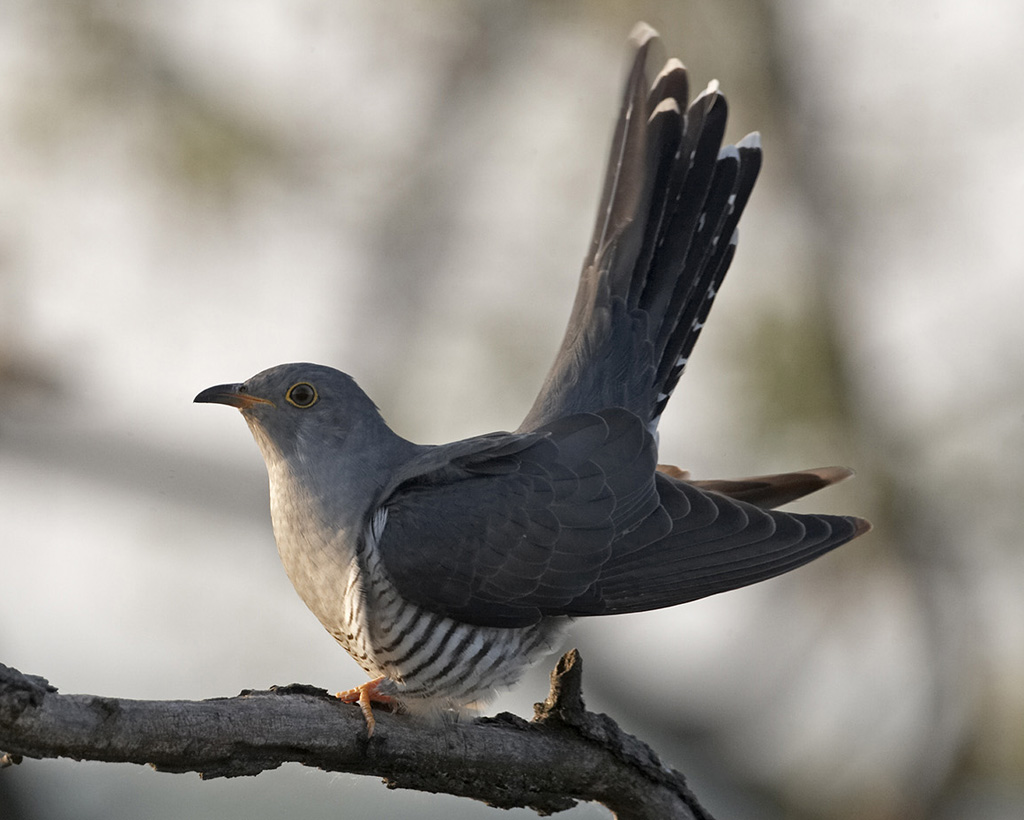
One of my resolutions for this year had been to keep a closer awareness of the important pagan calendar days throughout the year, the solstices and equinoxes, the phases of the moon, etc. I wanted to allow a closer connection with my intuition, with the signs that are thrown my way each day. That’s how I came to learn this year about the day of the cuckoo.
The day of the cuckoo is a nature-based, pre-Christian celebration that in Romania coincides, on March 25, with a significant Christian holiday. The religious holiday is a Marian one, the Annunciation, representing the day when Mary’s pregnancy with Jesus was first revealed.
The pagan holiday, alternatively called in Romanian “the day of blessing,” represents the first time when the cuckoo’s song is heard, announcing the arrival of spring. But the cuckoo does not only herald the beginning of spring. You should count how many times you hear the cuckoo and that will represent how many more years you have to live. If you hear it on an empty stomach and from behind you, it means that your death might come this year. Young women and men can ask the cuckoo how much time until they’ll find the one they’re destined to marry, and if the cuckoo sings, then it doesn’t happen this year, but if it keeps quiet, that this is the year when they tie the knot.
They also say that on this day you can have dinner with your guardian angel (Christian vocabulary again, but not a Christian custom at all) and if the angel feels welcome to your table, it will stay close to you throughout the year. A funny custom on this day, called “the scolding of the fruit trees,” is one where people go on to check their orchards and see if the trees have buds, and if a tree is not in bud yet, then it is shown an ax and is threatened that it would be cut if it doesn’t give fruit soon.
I will not dwell on how many religious holidays seem to neatly stretch over and cover ancient customs. I feel that this was a very subversive way for Christianity to take over older belief systems without meeting a lot of resistance. In the case of this particular event, it was not only the date that was given Christian significance, but the bird itself, apparently, has found a place in Christian iconography: the images of the cuckoo appears near the one of the Virgin Mary in Portugal, for example, as shown in this paper titled “The Madonna and the Cuckoo: An Exploration in European Symbolic Conceptions” by Francisco Vaz Da Silva, professor of anthropology and folklore at the University of Lisbon.
I also have a feeling that women should find the symbolism of the cuckoo empowering. While in the patriarchal framework, the cuckoo stands for selfishness, infidelity, and parasitism because it leaves its eggs in the nests of other birds, it can also be viewed as a symbol of the matriarchal lineage, the only lineage that is apparent and could always be determined with certainty.
